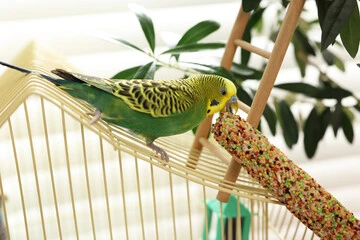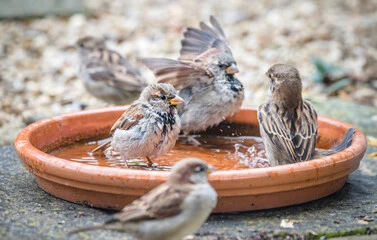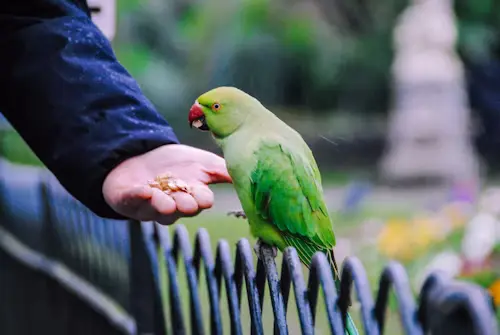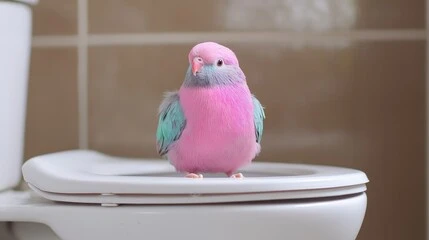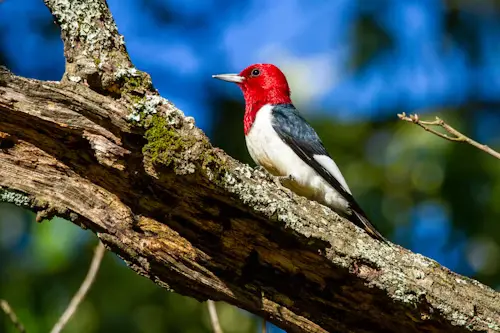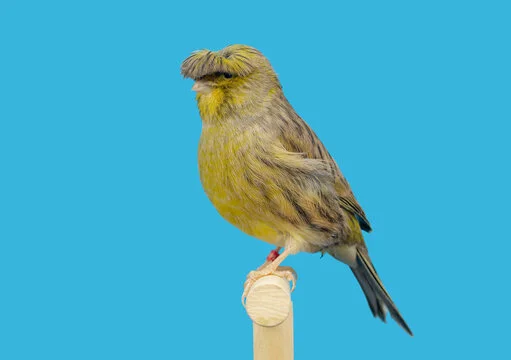Budgie Birds Talking: Best Secrets for Chatty, Happy Pets
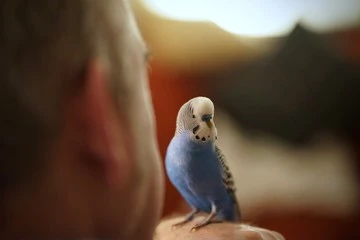
Remember that spine-tingling moment when you first heard a budgie say “hello”? As I watched my little blue dynamo, Sky, mimic my morning greeting after weeks of patient coaching, tears of joy welled up. That tiny voice sparked a connection deeper than I ever imagined possible. If you’ve ever dreamed of sharing conversations with your feathered companion—whether it’s about budgie birds talking or understanding their quirky habits—you’re about to embark on a magical journey. Let’s crush the myth that budgies just chirp; with the right approach, these pocket parrots become charismatic conversationalists!
Table of Contents
The Million-Dollar Question: Do Budgies Even Talk?
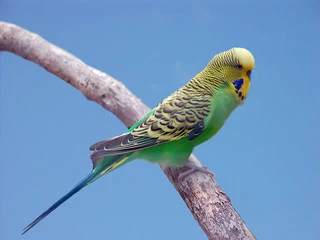
Absolutely! Budgies possess an extraordinary vocal prowess. While not all become chatterboxes, many learn dozens of words with surprising clarity—a male budgie named Puck holds the Guinness World Record with 1,728 words! Key factors include:
- Gender differences: Males show greater inclination toward mimicry due to hormone-driven territorial vocalizations. Females vocalize too but typically master fewer words.
- Age advantages: Younger birds (< 1 year) learn quicker as their brains absorb sounds like sponges. Older budgies still learn but slower.
- Personality & environment: Bold, socialized budgies in stimulating environments excel. A solo bird often talks more to bond with you.
Contrary to pet store myths, female budgies can talk—just usually less prolifically than males. My friend’s hen, Luna, perfectly mimics microwave beeps!
How to Create a Vocal Virtuoso: Your 8-Step Training Blueprint

Teaching speech combines neuroscience with love—it’s about patterning repetition during their alert, relaxed moments.
Foundational Bonding & Training Prep
Building trust is non-negotiable. Spend 10-15 mins daily:
- Sit near the cage reading aloud softly
- Offer millet from your hand when they approach
- Observe peak chirpiness (often mornings/evenings)
Never force interaction. Their comfort is paramount. Once they readily step up? You’ve got green light for speech coaching.
Speech Sessions: The Game Plan
- Target monosyllables first: Start with “hi,” “bird,” or their name using high-pitched, enthusiastic tones. Budgies resonate with frequency ranges above human speech.
- Short, frequent practice: 10-minute sessions, 3-5 times/day prevent burnout. Always end positively!
- Seize repetition windows: Say your target word while changing food, or entering the room. Associate words with routines like “Good mornnnnning!”
- Reward micro-successes: ANY sound attempt gets a tiny millet nibble. Celebrate babble phases—they’re testing vocal muscles!
- Scale up complexity: Once mastering 1-2 words, chain phrases like “pretty bird” in a melodic, consistent rhythm.
Milestone Expectations
| Timeline | Typical Progress | Your Actions |
|---|---|---|
| Weeks 1-2 | Silent observation; soft beak grinding | Establish routines; repeat keywords emotionally |
| Weeks 3-6 | Muffled mumbles; tonal mimicking | Acknowledge attempts; add 1 new simple word |
| Months 2-4 | First discernible word; sound play | Introduce phrases; incorporate toys/food names |
| Months 5+ | Phrases spoken contextually; vocabulary grows | Reward contextual use; teach novel sounds |
If progress stalls around week 8, don’t panic—some birds require many months of silent “incubation” before speaking distinctly.
Beyond Basic Words: Clever Budgie Birds Talking Tricks
Unleash your budgie’s full potential with attention-grabbing antics!
- Operant conditioning combos: Teach “kisses” by pairing the word with them touching your nose, then reward. Over time, say only “kisses” for them to initiate the action.
- Musical surprises: Play specific songs when treating them. Eventually, your humming might trigger singing.
- Association mastery: Name toys and foods during interaction—point to celery saying “Nummy celery!” They’ll start naming items contextually!
Pro trick: Repeat phrases before rewarding behaviors they enjoy (“Want a head scratch?” + scritches). Soon, they’ll ask for things!
Monitor exciting development stages through understanding their different vocalizations.
Troubleshooting Roadblocks: Expert Solutions
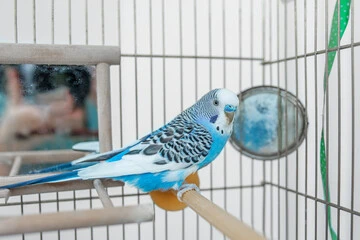
Is your budgie giving you the silent treatment? Try troubleshooting common hiccups:
- “My budgie murmurs to perches/walls!”: Solitary budgies often “practice” at objects like they’d socialize with flockmates. Consider getting a second bird BUT – expect chatter between them, not you! If you prefer solo bonding, increase mirrors with caution. Constant mirror fixation causes hormonal frustrations and redirects social focus from you.
- Head tucking while you talk:
- Sign of fear or mistrust? Lower voice volume; approach slowly.
- Sleepiness? Schedule sessions earlier.
- Persistent tucking with puffiness? Potential illness—visit an avian veterinarian.
- Zero progress despite consistency:
- Evaluate diet deficiencies affecting cognition
- Rule out underlying stress from predators/boredom with this guide to proper budgie care
- Consider using audio recordings ONLY of YOUR voice for reinforcement
For uniquely quiet personalities, explore quieter bird alternatives perfectly suited for your lifestyle.
Budgie Birds Talking: Your Pressing Questions Answered!
Q: At what age do budgies start talking?
Most babble at 3-4 months; articulate words usually begin around 6-8 months with training. Late bloomers can surprise you at over a year old!
Q: Why does my budgie only make noise with videos of other budgies?
Perfectly natural! Video sounds stimulate their instinctive flock responses. To shift focus to you, watch together for 10 minutes MAX, then pivot to direct engagement with treats/scritches.
Q: Can I play budgie-talking recordings 24/7?
Avoid constant playback—it causes sensory overload and fatalistic confusion. Instead, play your voice recordings for 1-2 hours daily during active periods.
Q: Are mirrors helping or hindering speech training?
They often hinder intense speech bonds by fulfilling social needs artificially. Use mirrors sparingly as coaching motivators only if pupil disengages.
Q: Why does my budgie whisper when it talks?
Whispers suggest insecurity or novelty. Reward whispering immediately, gradually excite louder enunciation using your own volume shifts as incentives.
That spine-tingling moment when Sky repeated “love you” will forever resonate with me—proof that patience beaks rewards. Your budgie’s tiny vocal organs hold monumental potential; unleash them through consistency, celebration, and contextual coaching. Remember, birds thrive on exuberant praise—so when Kimi finally greets you at dawn with cheerful chatter? Jump and shout: “YES! SMART BIRD!” Then tell us: what’s the first phrase you’re teaching your cherub? Share below to inspire others! Got a talking superstar already? Post videos for bird-loving friends to see—we love hearing every feathered voice gaining confidence!

